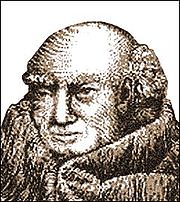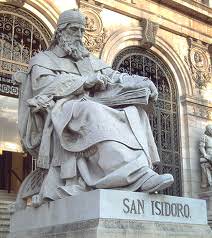Avicenna’s Concept of Cardiovascular Drug Targeting in Medicamenta Cordialia
Avicenna (980 – 1037 AD) known as the prince of physicians in the west was one of the most prominent Persian thinkers, philosophers, and physicians. Owing to his interests in cardiology, he authored considerable works on different aspects of cardiology.
‘Cast out into the hellish night’: Pagan Virtue and Pagan Poetics in Lorenzo Valla’s De voluptate
Valla wrote about Epicureanism before the Renaissance rediscovery of classical Epicurean texts. Poggio Bracciolini had not yet circulated his newly-discovered manuscript of first century Epicurean philosopher Lucretius’ De rerum natura, and Valla wrote without access to Diogenes Laertius’ Lives of the Philosophers, which discussed Epicurus’ teachings in greater detail.
Duns Scotus: A Brief Introduction to his Life and Thought
Duns Scotus, from his early years as a philosopher and theologian was confronted with this problem from within Aristotelian philosophy. And he gave a novel answer to it, one which differed from the Thomistic account.
Mental Disability and Intellectual Impairment in the Middle Ages: Some Preliminary Research Findings
This interesting paper was one of the four given in the Mental Health in Non-medical Terms session at KZOO. It looked at philosophy, iconography and the way mental disability was viewed in the Middle Ages.
Late Medieval Attitudes on the Evil in Warfare: Honoré Bouvet’s Arbre des batailles and its Sources
My approach in this paper will be to look at Bouvet’s view on the nature of warfare under these broad guidelines, and to treat them as a part of the greater tradition of medieval thought that was fed simulatenously by both pagan and Christian writings.
Penance and Peter Abelard’s Move Within
Of the many individuals in the twelfth century whose fame in their own time has reached down to ours, figures like Thomas Becket, Frederick Barbarossa and Bernard of Clairvaux, there is no one whose fame surpassed that of Master Peter Abelard and no figure more public. Indeed, fame was something Abelard coveted, something he consciously built.
Rule by Natural Reason: Late Medieval and early Renaissance conceptions of political corruption
This paper argues that, from about the eleventh century CE, a new and distinctive model of corruption accompanied the rediscovery and increased availability of a number of classical texts and ideals, particularly those of Cicero and the Roman Jurists.
The Greek Renaissance in Italy
For various reasons north Italy toward the end of the fourteenth century seemed peculiarly adapted to become the seat of another classical renaissance, though of one some what different in character and results from that which had already run its course.
Foolishness and Fools in Aquinas’s Analysis
Fools are legion. This self-evident truth, vouched for by Holy Scripture, is quoted more than twenty times by Thomas Aquinas: ‘stultorum infinitus est numerus’.
The Metaphysics of Peter Abelard
I’ll begin with Abelard’s antirealism about universals, since it is the key to his irrealism. It provides the foundation for his conviction that only individuals exist, a thesis that calls for further analysis of the nature of individuals
Reality and Truth in Thomas of York: Study and Text
The investigation is conducted through a study of opposites into which being is divided. These opposites are principally the one and the many, potency and act, truth and falsity.
The Islamic Scholar Who Gave Us Modern Philosophy
Abū al-Walīd Muhammad ibn Ahmad ibn Muhammad ibn Rushd—or Averroës, as he was known to Latin readers—was born in 1126 at the far western edge of the Islamic world, in Córdoba, Spain.
The Eternity of the World and Renaissance Historical Thought
Medieval and Renaissance controversies over the Aristotelian doctrine of “the eternity of the world” have hitherto been treated as disputes restricted to natural philosophers and theologians.
The Oxford Calculators
Oxford’s medieval philosophers deserve greater recognition, says Mark Thakkar
Origins of the Medieval Theory That Sensation Is an Immaterial Reception of a Form
Let me begin my own discussion of Aquinas by saying that it seems to me that Cohen adequately proved that it was a mistake to view the sensible form as existing in the soul rather than the organ, and that Aquinas is not denying to the sensible form as received by the sensor a place in the physical world, or indeed physical existence, when he says it exists immaterially or spiritually.
Exegesis According to the Rules of Philosophy or the Rule of Faith?: Methodological Conflict in the Ninth-Century Predestination Controversy
The development of biblical exegesis, as Contreni shows, was rapid, but not homogeneous. On the one hand, one of the main ways to acquire biblical wisdom was to rely on the interpretations and teaching of the Holy Fathers, whose texts were studied, assimilated, simplified, collected, and taught. On the other hand, Alcuin’s revival of the liberal arts6 paved the way for the rise of another method of biblical exegesis.
Love and Saint Francis of Assisi: A Performer in the Middle Ages
In “spending most of his life out of doors, in all seasons” Francis defies the basis of what we call civilized existence; if history is about progress in terms of making human life secure from nature’s vagaries, Francis rejects such a conception of history, along with its false sense of security, in order to situate human life in and as the natural world.
John Scotus Eriugena
Eriugena, master of the liberal arts, translator, philologue, poet, philosopher, and theologian, ‘reinvented the greater part of the theses of Neoplatonism’, by his time largely forgotten in the Latin West.
Exploring the Connections between Metaphysics and Political Thought in the Age of Wyclif and Gerson
Russell focuses on how important late medieval thinkers such as John Wyclif (c. 1320 – 1384) and Jean Gerson (1363–1429) understood metaphysics and how this had an instrumental effect on their political thought.
The Passion of Peter Abelard
In the philosophical part of the project we chose not to use Abelardís work Dialogue of the Philosopher with a Jew and a Christian, which explains his views on different religions. Since we decided to use the Letters of Direction in order to get an overview about Abelardís view on Christianity, there appeared to be little need for the aforementioned book.
The Three Recensions of Eriugena’s Versio Dionysii
However, as G. Théry later discovered, Traube’s point of departure—the citations of Dionysius in Hincmar’s treatise on predestination—was faulty. Since Traube published his notes on the manuscripts of the Versio, Théry has proven that the citations in Hincmar’s Liber de praedestinatione come from Hilduin’s translation rather than that of Eriugena.
‘In the Beginning’: The London Medieval Graduate Network Inaugural Conference
This is a summary of the The London Medieval Graduate Network Inaugural Conference by Rachel Scott. The conference was held on November 2nd at King’s College London.
The Concept of Jihad in the Period of Arab Expansion
Paper given at Religious Tolerance – Religious Violence – Medieval Memories: A colloquium in memory of James Powell
The Lost Millennium: Psychology During the Middle Ages
The medieval period – roughly the 1,000 years from the classical Greco-Roman age to the Renaissance and modern era has long been neglected in the history of psychology.
St. Isidore and mediaeval science
Did Isidore appear foolish to his contemporaries and immediate mediaeval successors, or is his foolishness a more recent discovery?
















